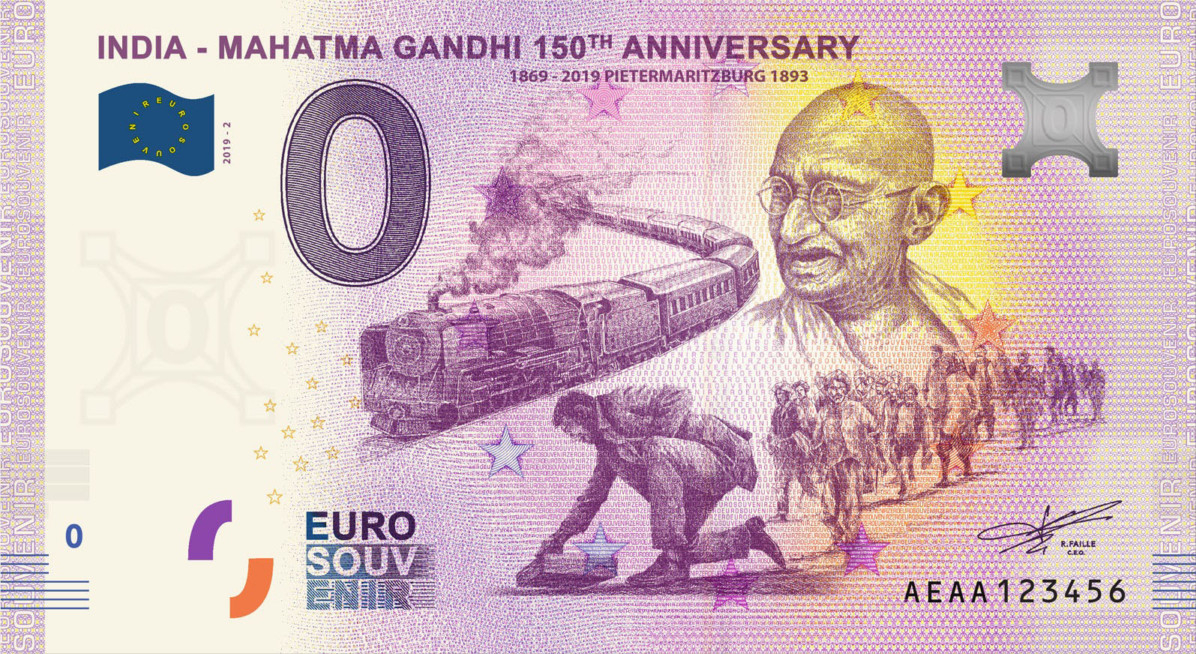Dubai: A Dubai-based numismatics company is launching a unique series of commemorative notes to celebrate 150th birth anniversary year of Mahatma Gandhi, India’s Father of the Nation.
The limited-edition Zero Euro 12–notes commemorative series is being unveiled by Numisbing, with just 5000 notes of each design, the company said in a press release on Wednesday.
Dubbed the first-ever Euro Souvenir Indian notes, the first two notes in the series are launching now and the rest sequentially until October 2, 2019.
Mahatma Gandhi’s fans across the world will have a unique opportunity to possess the first-ever Euro Souvenir Indian notes that celebrate 150th year of the leader’s birth anniversary.

The notes designed by Dubai-based Indian artist Akbar Saheb are based on interesting and famous incidents from Gandhi’s personal and political life, paying rich tribute to the legendary figure who remains a beacon for many across the world, the company stated.
Ramkumar, founder of Numisbing and President of International Bank Note Society, IBNS, Dubai Chapter said: “Initially, we thought we would do just one commemorative note, but then realised that Gandhi’s life is full of inspirations and confining all of them to one would not be possible, or fair to the great man. So we decided to stagger it into a series of 12.”
Steve, co-founder of Numisbing and Secretary IBNS, Dubai Chapter said the Zero Euro note is a souvenir banknote authorised by the European Central Bank and are printed in the same security printers which are used to print the Euro banknotes. “These notes carry all the security features of Euro banknote, except that they are all marked as ‘0’, and are tested to ensure they cannot enter circulation as legitimate financial currency.”
The first note of the two notes getting released first discusses the three vows that young Mohandas Gandhi gave to his mother Puttlibai before he left for England for further studies in law.
One, that he would not drink alcohol; two, that he would abstain from non-vegetarian food; and the third, that he will look upon other women as mothers or sisters.
The second note is based on the famous incident when Gandhi was thrown off a train at the Pietermaritzburg Railway Station, South Africa in 1893, when he refused to move from a “whites-only” compartment. Despite being afraid, he stood his ground, and history says that this was the moment that Gandhi began his non-violence movement that eventually proved to be a critical factor in gaining independence for India from the British.










